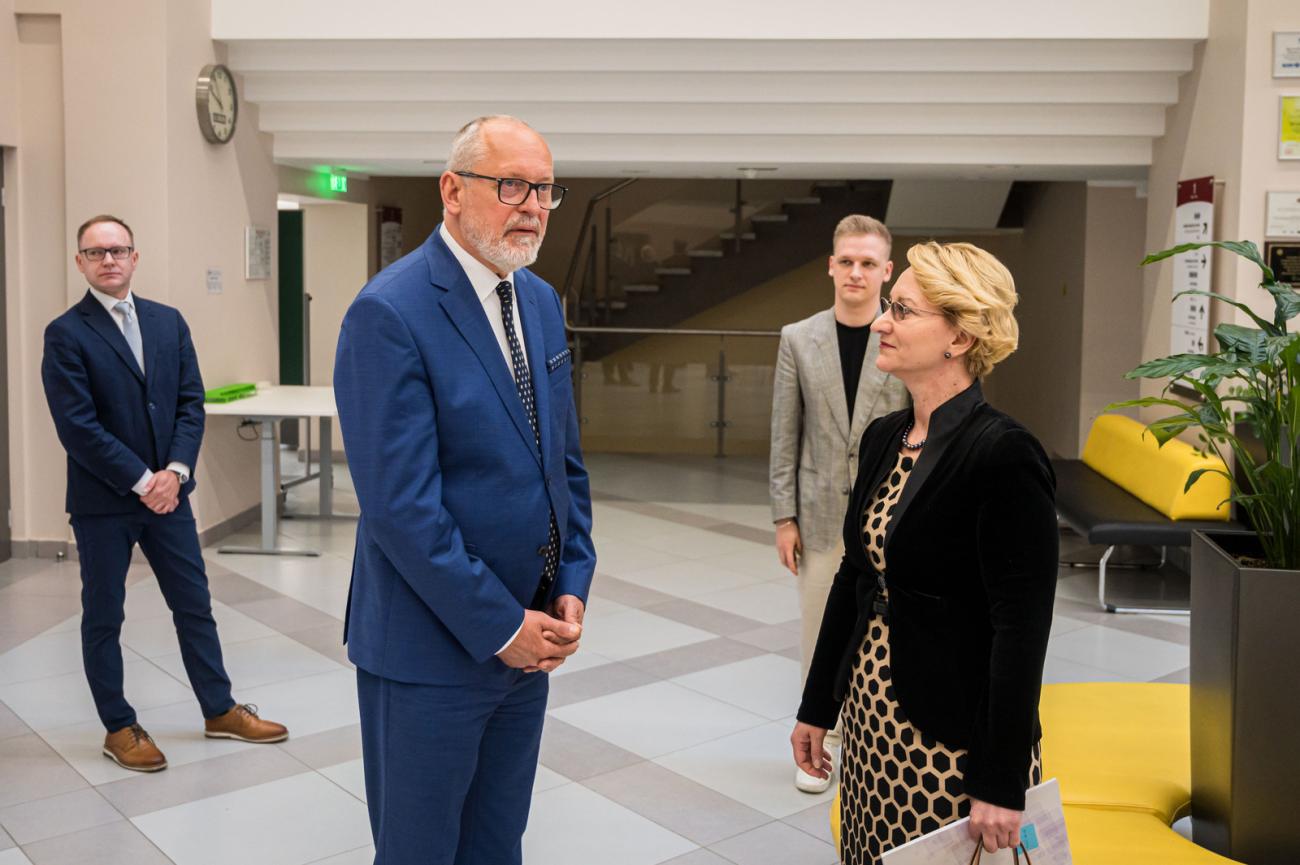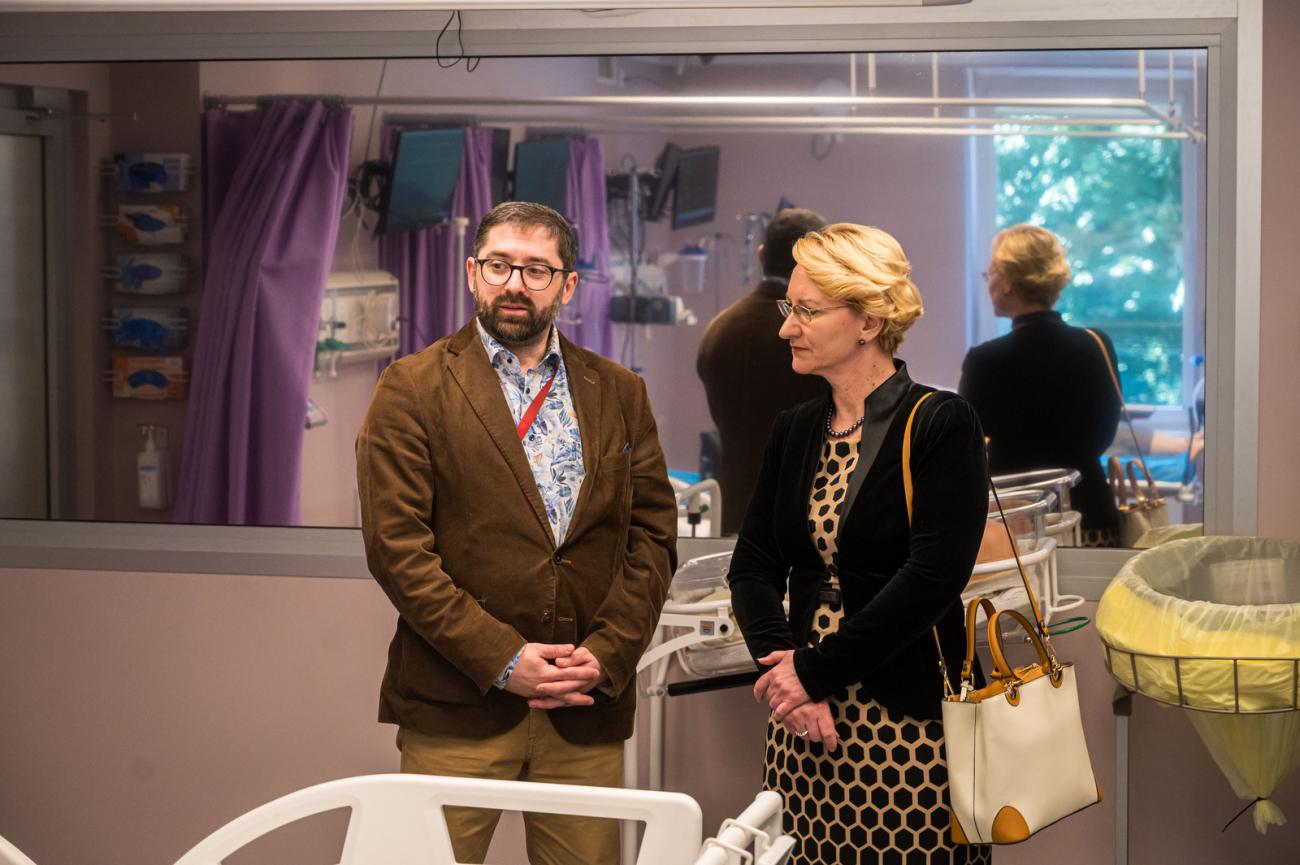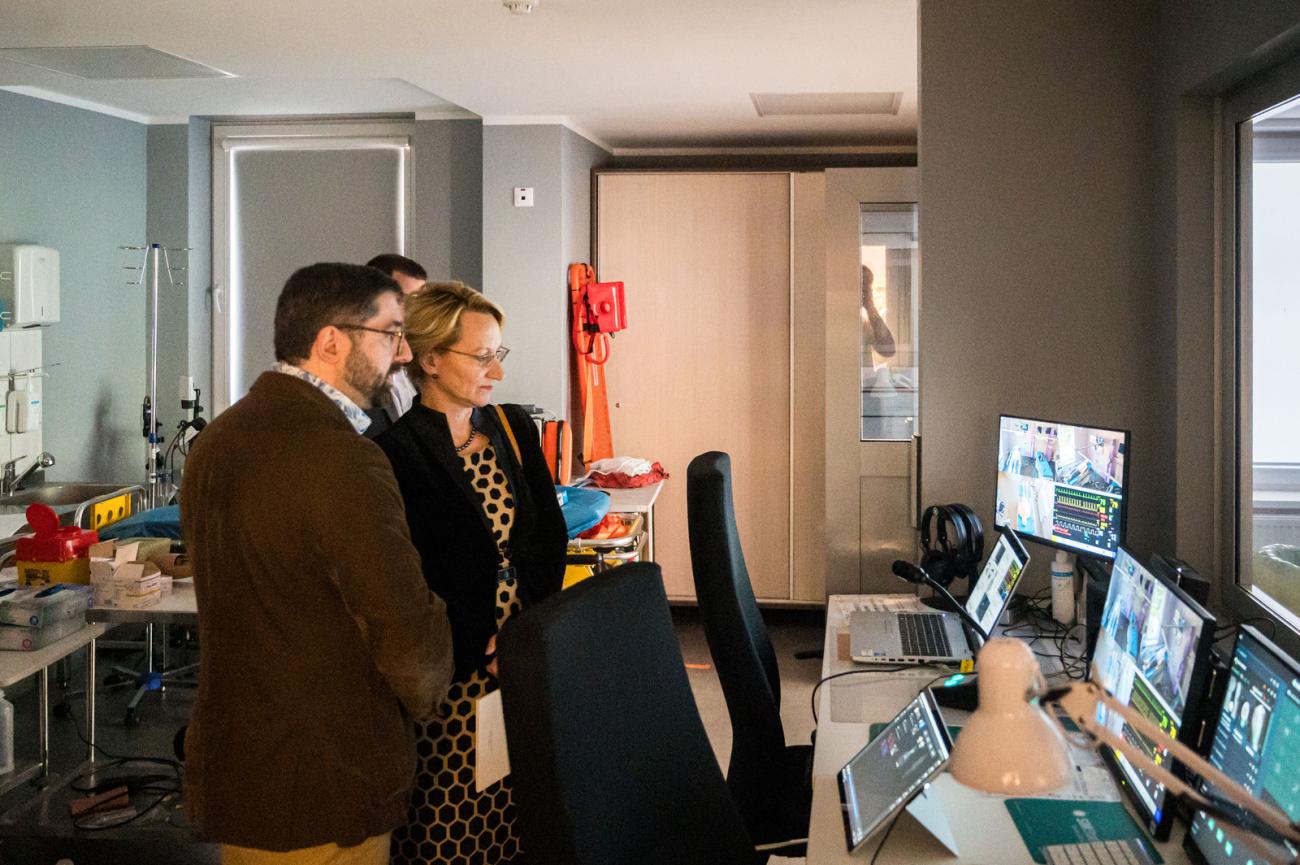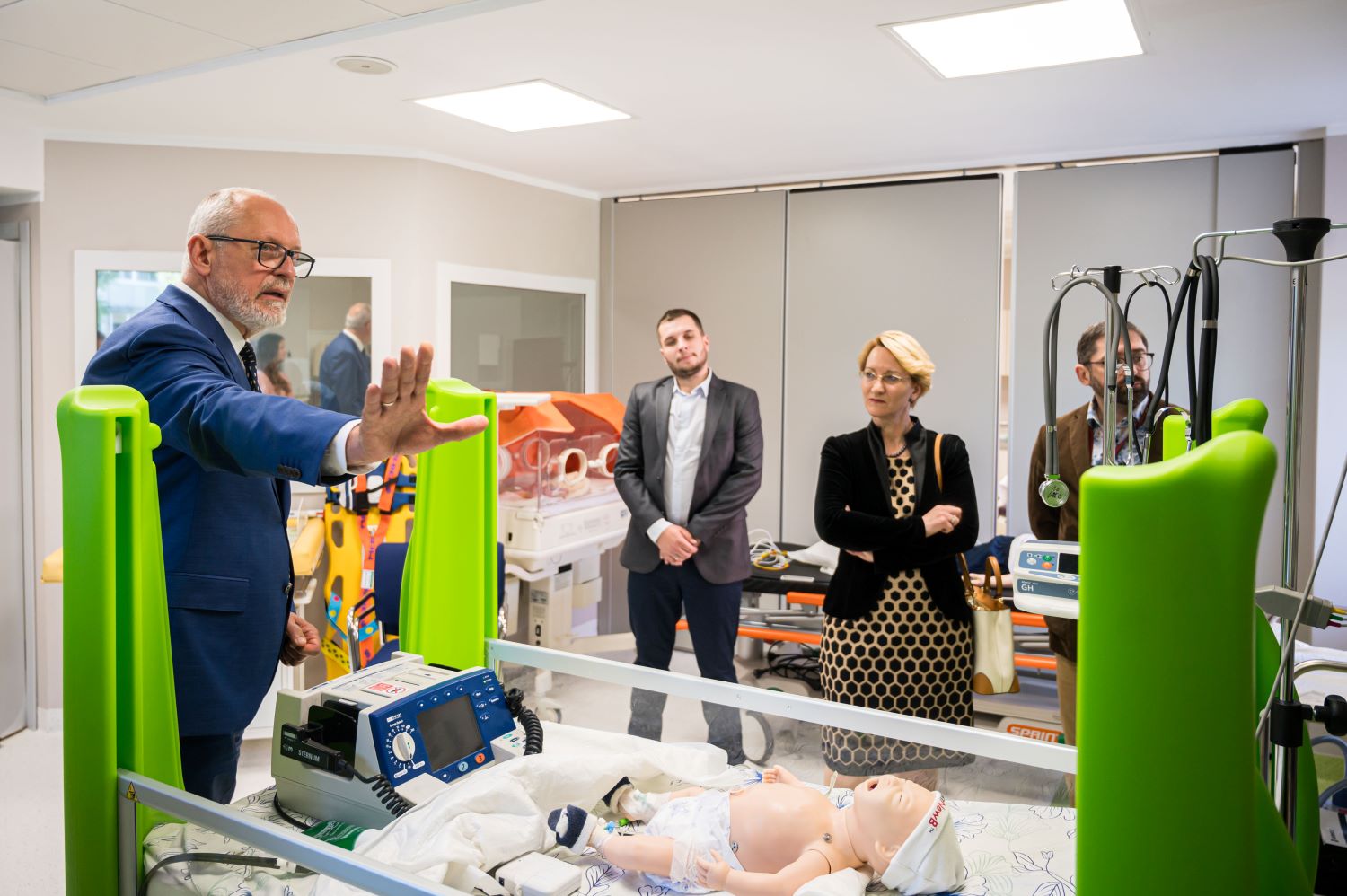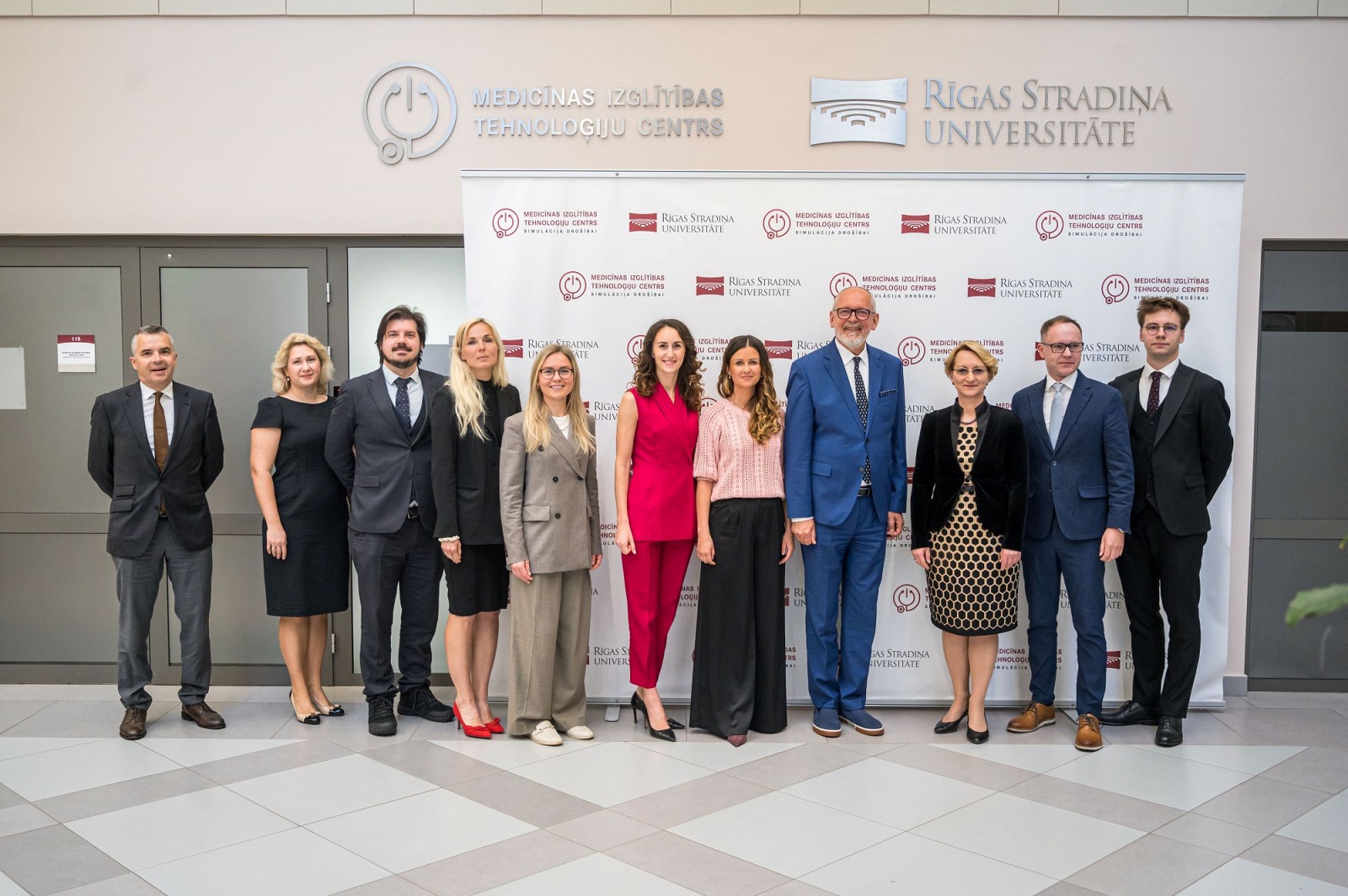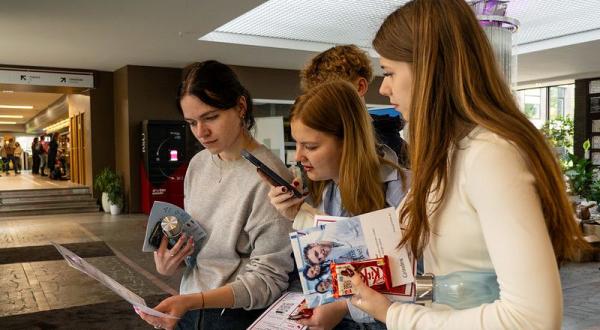Minister discusses current issues in higher education with RSU leadership
On 26 June 2025, Dace Melbārde, Minister of Education and Science, visited Rīga Stradiņš University (RSU) to meet with the University’s leadership and discuss the development of higher education, the institutional funding model, and the University’s role in training specialists to meet public sector needs.
The meeting with the Minister of Education and Science and representatives of the Ministry began with a short tour of the RSU Medical Education Technology Centre (METC), where the guests had the opportunity to explore medical simulation technologies, including those used in military medicine. Following the tour, the meeting continued with a discussion on current issues in higher education. During the meeting, RSU Rector Prof. Aigars Pētersons, informed the Minister about the successful consolidation of RSU and the Latvian Academy of Sport Education (RSU LASE), noting that the process has increased opportunities for developing sports science, research, and innovation.
During the visit, RSU’s strategic priorities in research and innovation were also presented, with particular emphasis on the potential of the RSU Lifelong Learning Centre and the RSU Innovation Centre in developing interdisciplinary solutions and fostering collaboration with the business sector. The RSU research presentations highlighted both the University’s achievements and its goals for strengthening international collaboration and launching new projects.
Discussion on the future of higher education and specialist training
A key topic of discussion was the governance and future development of the institutional funding model, with an emphasis on enabling universities to plan their long-term growth and areas of specialisation more strategically.
Minister Melbārde highlighted the shortage of public service professionals in Latvia, particularly noting the urgent need for social pedagogues, speech therapists, and school psychologists. She stressed that higher education institutions should take an active role in training these professionals and in supporting the development of their qualifications.

